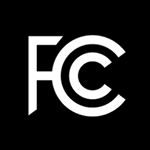Although Don Imus was in the title of a Subcommittee on Commerce, Trade and Consumer Protection session, he was otherwise nowhere to be found in the hearing in which Bobby Rush (D-IL) hosted members of the broadcast, recording and interactive communities in a discussion of language used in their content. The First Amendment was at the core of the proceeding.
Jan Schakowski (D-IL) succinctly summed up the dilemma posed by this issue, saying "Censorship of media that we find offensive is a dangerous game," but adding on the other hand that she doesn’t believe that corporations should be able to profit off degrading material, and that consumers have responsibility as well.
The panel included both distributors and producers of content, and all agreed that the problem, such as it is, sources from the production end of the equation. Radio One’s Alfred C. Liggins III and Viacom’s Phillippe P. Dauman both noted that as distributors they restrict themselves to edited versions of potentially objectionable material. In Liggins case, this was a necessity since Radio One’s core business is as an FCC-regulated broadcaster. Liggins said his company will take the edited versions and edit further if necessary.
Producers Edgar Bronfman Jr. of Warner Music Group and Doug Morris of Universal Music Group, along with gamer Strauss Zelnick of Take-Two Interactive Software, were adamant that they had no business interfering in the free speech of artists, and noted that art is often controversial and objectionable to some, but that making it available was a key aspect of what the First Amendment is all about. They said they were scrupulous, however, when it comes to labeling content to warn parents and in providing broadcast-ready edited versions for radio and television stations.
Rush asked if artists and producers could remain viable if they agreed to avoid hateful lyrics. The producers said that was beside the point, and that it was not their place to censor artists. Liggins said if that were to be done, "renegade" artists would simply fill the void and that the material would get out to the public one way or another. Cliff Stearns (R-FL) likewise was unable to get any producer to agree to ban any single word as uniformly objectionable. Zelnick said sometimes the worst of the language is needed to lend authenticity to a work of art.
|Testimony summaries |
* Phillippe P. Dauman, Viacom: "With influence comes responsibility." "We have a responsibility to entertain" without which they’re out of business. Responsibility to connect with audience, which is very difficult and requires a wide-net approach. Rather than seek consensus and stifle creativity, we seek balance of content. Not every item is for every consumer. Use ratings on video and audio to aid parental decisions.
* Edgar Bronfman Jr., Warner Music Group: We "…recognize that we have responsibility for the music we present to the public." Artists/creative artists in any medium discussing controversial issues try to spotlight them, but throughout history have often been accused of being part of the problem in so doing. It’s often offensive to some. But it may be necessary to others. Striking an appropriate balance is difficult. Elvis Presley, Rock, Rhythm and Blues, etc. have been branded as "the work of the devil." Content practices: Creative process, work with artists. Evaluate societal context and artistic merit of work. Rate and label content, offer edited versions to broadcasters, retailers.
* Doug Morris, Universal Music Group: Universal’s mission is to offer music fans as diverse a group of artists as possible, knowing that not every artist will appeal to every consumer. Artists look at the world "differently than you and I" and often consider things we’d never think of. Most of Universal’s catalog does not contain offensive material, but some Rap does, and that’s of course the inspiration for this hearing. Says he’s head of the company, and the artists words are not his words, but he has not lived their lives and endured their struggles, and does not wish to alter their art or interfere with their right to express themselves. If artists use explicit, highly charged words, we’ll so label it for parents. Edited versions are made available for radio and television. We avoid marketing explicit material "anywhere near" young people. We pay a price for the First Amendment, including the pain of hearing offensive, painful speech, but it pales in comparison to our own ability to speak our minds.
* Alfred C. Liggins III, Radio One: Content broadcast is reflective of the audience the company serves. Very engaged in constituency’s public affairs. Radio One Hip Hop stations helped bring national focus on Jena 6. Content questions have always existed. Bible? Some said it’s too violent. Mark Twain? Some say he’s too racist. These debates will go on always. Radio One does not create content, nor is it in the business of censorship, but does have FCC-mandated public interest obligations. Of all music platforms in existence, only broadcast faces any restrictions. Stations receive radio-ready edits of material and edit further if necessary. Radio One must serve its audience, and therefore must have Hip Hop in its mix.
* Strauss Zelnick, Take-Two Interactive Software: Grand Theft Auto manufacturer. 18.5B industry, bigger than movie box office. Entertainment doesn’t create values, and it reflects society. I’m pleased that today’s discussion doesn’t include the First Amendment. What can interactive entertainment do? Average customer age is in the 30s. Ratings system is rigorous. Enormous line between entertainment and exploitation, and we try to stay on the right side.




